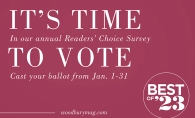How do we come to these decisions about beliefs when tied to such towering concepts as a meaning for life?
The real cause of beliefs in a political or social position, I think, are rooted in personal history, our nature/nurture and big events in our life that truly impacted us. But as “logical” beings, we often think that if we lay out our beliefs with facts and data, then the other side will see the errors of their ways. My 91-year-old father reminds me that some of us like to hear ourselves talk, but not learn from others.
The arguments come first, and the conclusion comes later; but often assumptions come first, and rationalizations come later.
What seems to be disappearing is a culture of debates between diverse opinions. Many no longer see the need for the dialectic process. We could educate folks to be better critical thinkers—and would it help if educators themselves were more Socratic in their approach? Teaching the pros and cons of differing topics would be a great start—we all need to be taught to consider both sides.
Find part three of What is something you believe in? in the November issue of Woodbury Magazine.
Margaret Wachholz is the campus marketing director at Woodbury Senior Living. In her column, she shares observations and wisdom about aging and senior living in our community. woodburyseniorliving.com









